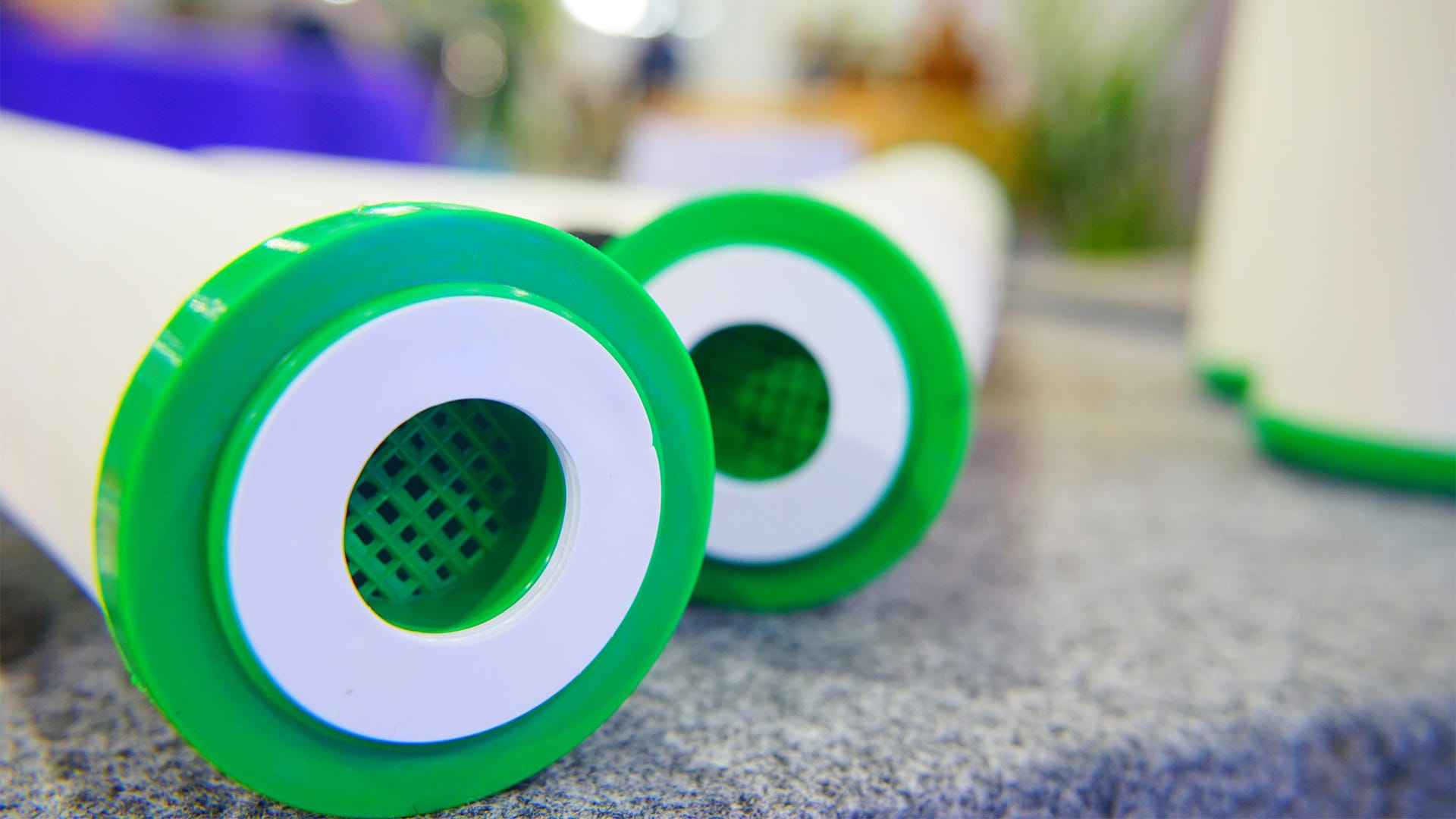
Don't be alarmed, but the water you drink from your tap may not be healthy for the plants in your indoor garden. For your health and safety, water from municipal reservoirs and similar sources are treated with chlorine and other chemicals to kill the microbes that can cause people to get sick. Water from wells often contains naturally occurring minerals, such as calcium, iron, and sulfur. In low concentrations these don't impact your health. In both cases, the impurities in the water can alter the pH of your nutrient solution and prevent your plants' roots from taking up the vital elements in fertilizers. Distilled water -- made by capturing steam -- is ideal for your plants because it is pure H2O and pH neutral. But buying distilled water can run up the costs of your indoor garden very quickly. So what can you do to give your plants the cleanest possible water? Try one of these types of filters.
WATER PITCHERS
Refillable water pitchers use activated carbon to filter out much of the chlorine and mineral content of water. They do not, however, eliminate other impurities such as heavy metals or fluoride (which is added to municipal water supplies in many areas).
- Price: Starting at about $30, plus filter cartridges
- Pros: These are the simplest and least expensive option.
- Cons: You need to continually refill pitchers.
FAUCET ATTACHMENTS
Like the pitchers, faucet filters use charcoal to clean out chlorine, calcium, and other minerals. Better models use have a block of carbon rather than the loose charcoal found in pitchers.
- Price: Starting at about $50, plus filters
- Pros: Works whenever you turn on the spigot.
- Cons: Many, but not all, impurities are removed.
REVERSE OSMOSIS
A set-up that attaches a filter to your pipes, a reverse osmosis system forces water through a semi-permeable membrane before it reaches the spigot. The membrane filters out more than 90 percent of compounds that are in water.
- Price: Starting around $170
- Pros: Purer water than any but distilled.
- Cons: Need plumbing skills to install.
WATER CONDITIONERS
"Hard" water has high concentrations of minerals such as calcium and magnesium that can leave behind white crusty deposits around spigots, containers, tubing, and anywhere else it dries. If you see dingy "scale" inside your coffee maker, you have hard water. You can install a water softener to protect your gear and plants from these mineral deposits. The most basic models use salt in a filter to extract the minerals, but you can also find models using potassium chloride, if you are concerned about salt content in the water.
- Price: Starting at $400
- Pros: Only filter type to completely eliminate deposit-forming minerals.
- Cons: Expensive to buy, install, and replenish filters.
YOUR PLAN FOR WATER
How do you get water for your grow operation? Show us your set-up the next time you visit Safer® Brand on Facebook. Got questions about the nutrients or pests in your hydroponic garden, call the Safer® Brand customer service center at 855-7-ORGANIC or contact us online. You can also get great deals on our products and even more advice when you subscribe to our E-Newsletter.



